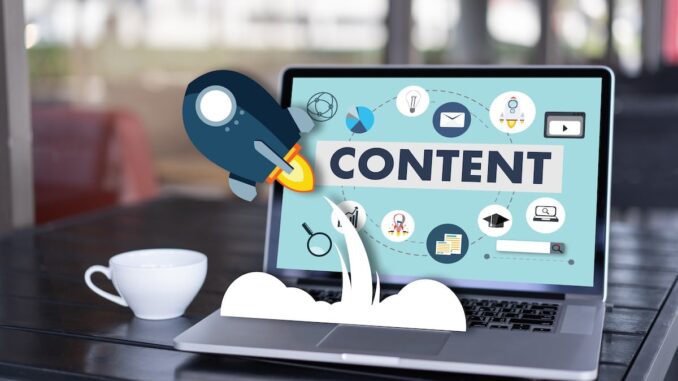
Your website is only as good as its content. What is content? Well, it’s almost anything you might add to your website, from new web pages and blog posts to videos and images. There’s a lot to cover, so without further ado, here’s the list!
1. Blog Posts
Blog posts are one of the most valuable types of content that you can add to your website. They catch readers who might not otherwise find your website, especially if you’re writing posts that are intended to answer questions. You get to showcase your expertise, give readers a sense of your personality, target keywords that are searched for frequently, and gain links from other websites (very important for search engine optimization aka SEO). You can also add a number of the other types of content we’ll discuss to your blog posts. Update your blog frequently – at least once a week is best!
2. Videos
Short videos are an excellent form of content. They’re incredibly sharable, and they’re particularly good for things like how-to guides. They tend to do very well on social media platforms, and adding captions to your videos can also help with SEO. What’s more, captions are great for accessibility! You can make videos for all kinds of things – behind-the-scenes, team outings, the aforementioned how-to guides, and much more.
3. Reviews and Testimonials
You won’t be surprised to learn that products with higher ratings sell better. Showcasing your reviews and testimonials is a great way of letting customers know that you offer high-quality products and services. There’s a variety of ways you can do this, from uploading video testimonials and images of reviews, to getting plug-ins that actively load new positive reviews from Google or other websites.
4. Location Pages
Location pages are web pages that are specifically designed to cater to a particular location. These pages are particularly useful if you own a business with multiple locations, or if you want to target various neighbourhoods and communities around one central location. Location pages are particularly useful for local business SEO, because they increase the chances that people will find your business with “near me” and other location-based searches on Google and other search engines.
5. Infographics
Infographics share a lot of qualities with videos – they’re very sharable (they do especially well on Instagram), and they’re great for conveying complex information in an easy-to-digest package. Be sure to host infographics both on your page and on social media, and add your company’s logo somewhere on the infographic. That way, when it’s shared far and wide, people will know who made it!
6. Contact Page
Every website should have a “Contact Us” page, even if your contact information is displayed in the page’s footer (which it absolutely should be). This page should contain your name, address, and phone number (known as an NAP citation), as well as a simple contact form. You want to keep that form at no more than 2-3 fields so it’s easy for mobile users to fill out.
7. About Us Page
We love to check “About Us” pages, because they give a quick impression of the company, their philosophy, and the members of their team. You should reserve your best copy for the “About Us” page – it’s an elevator pitch for a customer who may never meet you in person.
8. Checklists
Have a plumbing business? Create a multi-point checklist for preventive plumbing care you can do around your home. Run a bed-and-breakfast? Create a list of all the things you should pack before going on a road trip. Checklists are excellent resource-as-marketing content; people who weren’t explicitly looking for your services will find you when looking for related information.
9. E-Books
E-books are downloadable content that provide a comprehensive analysis of a given subject. This can seem daunting, but it can be used by any business – just think about areas where you have a wealth of knowledge, and write something incredible. This can take a lot of effort, but the payoff can be well worth it. You can put the e-book behind a landing page where users need to input their email to get the e-book. This puts them on your mailing list, and opens up a number of marketing opportunities.
10. Tools
Tools are among the most complicated types of content – but they have tremendous potential. Let’s say you work for an interior design company. You might develop a tool that allows users to pick a colour, then generate colour palettes based on that colour. Tools like this are widely shared when they’re useful, and that can drive a lot of traffic to your website.
All of these types of content can be incredible for your business. You should look at what your competition is doing, and what kinds of content are doing well in search engines for particular terms. Grow your business without losing balance. Focus on the types of content that are going to bring you success.
Written by Kiara Fulham

Leave a Reply